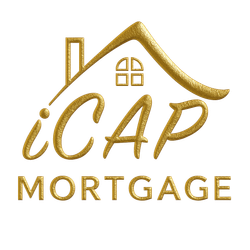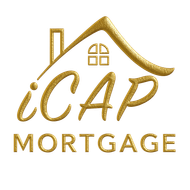Your Trusted Partner in Mortgage Financing
Unlock Your Potential with Knowledge, Confidence, and Real-World Solutions | NATIONWIDE
ICAP Mortgage: Your Trusted Partner in Texas and georgia
What sets ICAP Mortgage apart is our unwavering dedication to our clients throughout Texas and Georgia. We offer a unique blend of personalized advice and cutting-edge technology, ensuring that you receive tailored solutions suited to your individual needs. Our courses not only propel real estate agents into successful careers but also empower home buyers with critical insights for making informed decisions. Our commitment to service excellence makes us the best choice for those seeking financial empowerment and homeownership success. Reach out to ICAP Mortgage and experience our unparalleled expertise firsthand.
Real Experiences, Real Results
Frequently Asked Questions
If you can't find the answer you need, feel free to contact us.
Home Buying Basics
What down payment assistance programs are available?
We partner with local and national down‐payment assistance programs—grants or forgivable loans—to help eligible buyers with their upfront costs. Ask us for a list of current options.
How much down payment do I need?
It depends on the program: Conventional loans can require as little as 3%, FHA loans 3.5%, and VA/USDA loans may offer 0% down for qualified borrowers.
Do I need mortgage insurance if I put 20% down?
No. Conventional loans with at least 20% down avoid private mortgage insurance (PMI). Below 20%, PMI is typically required.
What’s the difference between pre‑qualification and pre‑approval?
- Pre‑qualification is a rough estimate based on information you provide.
- Pre‑approval requires document verification (income, credit, assets) and gives you a stronger offer power.
What credit score do I need?
Requirements vary: FHA loans can go as low as 580, while conventional loans generally prefer 620+. Credit challenged? No worries. Our tailored credit‑improvement programs partner with you to boost your score and unlock our best loan options.
How long does the mortgage process take?
On average, 30 days from application to closing—though timing can vary based on loan type, appraisal schedules, and how quickly documents are returned.
Credit & Qualification
Can I qualify if I’m self‑employed?
Absolutely, yes. We offer Bank‑Statement and other Non‑QM (non-traditional) programs designed for complex income documentation.
Will my student loans hurt my approval?
Student loans factor into your Debt‑to‑Income (DTI) ratio, but we have strategies—like income‑based payment calculations—to help manage their impact.
Specialty Loans
What is a DSCR loan?
A Debt‑Service Coverage Ratio (DSCR) loan is designed for real estate investors. Instead of using your personal income to qualify, we use the property’s rental income to determine eligibility.
How does a Reverse Mortgage work?
For homeowners 62+, a reverse mortgage converts home equity into tax‑free funds—no home sell required and no monthly mortgage payments.
What is a Texas Cash‑Out Refinance?
Texas allows homeowners to refinance their mortgage and pull ash from their home's equity, but with unique state- specific rules to protect borrowers. We are experts in navigating these guidelines.
Fixed vs. Adjustable Rate Mortgage—what’s the difference?
- Fixed‑Rate Mortgage: Your interest rate and payment stay the same for the life of the loan.
- Adjustable‑Rate Mortgage (ARM): Starts with a lower fixed rate for an initial term (e.g., 5, 7, or 10 years), then adjusts periodically based on market indexes. Ideal if you plan to move or refinance before the rate changes.
What is an Interest‑Only loan?
An Interest‑Only loan lets you pay just the interest (not principal) for an initial period—often 5–10 years—resulting in lower monthly payments up front. After that, you begin paying principal plus interest, so it’s best if you plan to sell, refinance, or expect a jump in income before payments increase.
Application & Process
What documents do I need to apply?
Typically:
- Last 2 years of W‑2s & tax returns (business returns for self‑employed)
- Recent pay stubs
- Bank statements
- Valid ID
- Proof of assets/savings
We'll provide a full checklist one you start your application! APPLY HERE
When should I get pre‑approved?
Ideally, before you start seriously shopping for a home. A pre-approval gives you a clear budget and strengthens your offer when you find the right property.
Will applying hurt my credit?
A mortgage credit pull is considered a “soft” inquiry, similar to checking your own credit. If you shop multiple lenders within a short window (usually 14–45 days), all pulls typically count as a single inquiry.
General
Can I buy and renovate at the same time?
Yes! Renovation loan options let you finance home improvements into your mortgage.
What are closing costs?
Closing costs include lender fees, title/escrow charges, appraisal fees, and insurance—typically 2–5% of the loan amount. We provide a Closing Cost Estimate upfront.
What is PITI?
Principal, Interest, Taxes, & Insurance—the four components that make up your total monthly mortgage payment.
What is LTV?
Loan‑to‑Value ratio: the percentage of the home’s value you’re borrowing. (e.g., $180K loan on a $200K home = 90% LTV)
What is DTI?
Debt‑to‑Income ratio: your total monthly debt payments divided by gross monthly income. A key factor in mortgage approval.
Who can benefit from iCAP Mortgage services?
Anyone looking to buy, refinance, invest, or consolidate debt. From first‑time homebuyers and seasoned investors to retiring homeowners and busy self‑employed professionals, we have a program to fit your goals.
Continuing Education
What makes your CE classes for real estate agents so unique?
Our CE courses are taught by seasoned mortgage pros, packed with real‑world case studies, networking opportunities, and free co‑branded marketing materials—giving agents immediate value and a competitive edge.
Still Have Questions?
We’re here to help—512-970-4663 or Schedule a Free Consultation and get real answers from a real expert.







